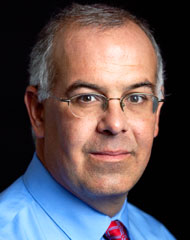by Margarita Mooney Clayton on February 19, 2012
This post originally appeared on the Black, White, & Gray blog.
In his recent column responding to the You Tube hit video, “Why I Hate Religion, but Love Jesus,” New York Times Columnist David Brooks sent a clear message to many would-be reformers: if you desire reform, you are better off joining a movement tied to a tradition.
Tradition is hardly a word we hear anymore. When it is evoked, it is often used negatively. Many people distrust institutions that symbolize traditions, such as the government and religion. The free market–which can be considered a tradition in that it refers to a set of principles on which our economy is based– has also come under fire. Change Washington, Occupy Wall Street, and give me Jesus without the church may be catchy phrases, but Brooks’s column leads us to ask: with what will you replace those traditions?
Although many critiques of government, markets, and religion may be right on, Brooks poses a challenge, which I paraphrase as: If you don’t like the tradition you see, look around for another tradition to which you would give authority. If you try to reform what you don’t like without knowing much about alternatives, you probably won’t persuade anyone to join you.
Brooks writes:
“My own theory revolves around a single bad idea. For generations people have been told: Think for yourself; come up with your own independent worldview. Unless your name is Nietzsche, that’s probably a bad idea. Very few people have the genius or time to come up with a comprehensive and rigorous worldview.”
“Whereas in all well-regulated governments it is the indispensable duty of every Legislature to consult the happiness of a rising generation, and endeavor to fit them for an honorable discharge of the social duties of life, by paying the strictest attention to their education: And whereas an university supported by permanent funds, and well endowed, would have the most direct tendency to answer the above purpose…[be the University of North Carolina therefore created].”
Do our universities today fail to form our students to discharge their social duties, placing own traditions of democracy and liberty at risk? Do we teach our students to critique traditions they may not like in a way that encourages them to engage with other traditions and propose solutions?
Other than colleges, where else might recent generations have been taught that traditions don’t matter? Perhaps our religious leaders are setting a bad example–if you don’t like one religious tradition, start your own. If we don’t need to know the traditions behind how Christians understand Jesus’ teachings, they why not ignore other traditions?
I admire the energy and optimism of those calling for religious, economic or political change. Yet, I agree with Brooks that not everyone is called to be a prophet. I learned great intellectual humility when I completed my Ph.D. thesis. It took 6 years of study, writing and research to come up with one important and well-argued thesis in sociology. If it took me 6 years to say something original to my field of study, shouldn’t I pay attention to the ideas that founded this nation? Shouldn’t I learn about the traditions that have guided Christian thinking for two thousand years? Shouldn’t I consider competing arguments about the best way to organize economic life? The best ideas show they understand the alternatives, that is, the traditional arguments, and demonstrate why the new ideas are superior.
Writing a dissertation also taught me that we do not conceive of ideas–or at least not good ones–in isolation. Our best ideas almost always come about through dialogue, revision, and self-critique.
Even if we are not all prophets, we all can be reformers. Reformers can work within traditions to renew them and to bring them back to their essence. But being a reformer is hard work, just like being an intellectual is hard work. I learned that Ph.D. not only stands for Doctor of Philosophy, it stands for perseverance, humility and discipline. We may not all earn Ph.D.s from universities, but if we can all live the virtues of perseverance, humility and discipline, we can all be reformers, wherever we are.
